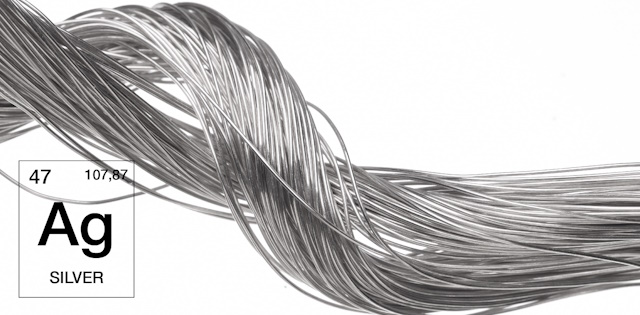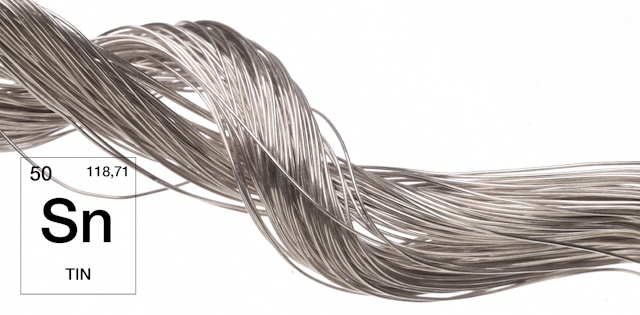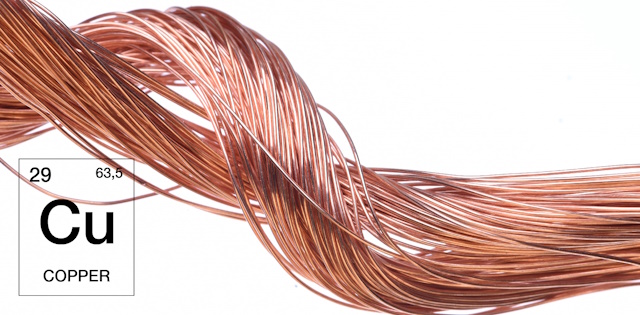What is Silver-Plated Copper Wire?
Silver-plated copper wire is obtained by coating bare copper with the element silver. In addition to achieving a bright and shiny surface, silver plating enhances the conductivity of copper.
Additionally, silver plating exhibits excellent corrosion resistance properties. Silver has the highest electrical and thermal conductivity among all metals, as well as the highest optical reflectivity. Due to its high-temperature resistance, it is preferred as a coating type for surfaces exposed to high heat and applications requiring high friction resistance.
Due to many of these superior properties, silver-plated copper wires are a suitable choice for use in nuclear, aerospace, defense industry, and many other industrial applications.

What is Tin-Plated Copper Wire?
Tin-plated copper wire is a conductive material obtained by coating the surface of copper wire with a thin layer of tin.
Tin plating increases the durability of copper by protecting it against oxidation and prevents copper from tarnishing when exposed to air. Furthermore, tin-plated wires facilitate the soldering process, which is why they are widely used in electronic circuits and electrical devices.
Another advantage of tin-plated wires is that they provide low-cost protection. Tin-plated wires are successfully used in various application areas, from telecommunications infrastructure to solar panels, automotive to the robotics industry, offering a resistant option against factors such as humidity and salt, particularly in challenging environmental conditions like maritime industries. These wires provide reliable conductivity and protection in both indoor and outdoor applications.

What is Uncoated Copper Wire?
Uncoated copper wire is a type of wire made from pure copper without any surface coating.
These wires naturally offer high electrical conductivity, which is why they are commonly used in electrical systems, particularly in indoor wiring. The purity of copper ensures low electrical resistance and minimizes energy loss.

Where Are Silver and Tin-Plated Copper Wires Used?
Silver-plated copper wires are frequently preferred in telecommunications, aerospace, and military applications that require high conductivity. These wires are used in places where high-frequency signals need to be transmitted seamlessly, and they also provide long-lasting performance in challenging environments due to the oxidation resistance of the silver plating. They are also commonly used in electronic devices, radio frequency (RF) cables, and antenna systems.
Tin-plated copper wires, on the other hand, generally offer lower-cost protection and long-lasting soldering advantages. Frequently used in electronic circuits, white goods, and the automotive sector, these wires are particularly preferred in humid or corrosion-prone environments. Thanks to the tin coating, copper is protected against oxidation, providing long-term durability.
Where Are Uncoated Copper Wires Used?
Uncoated copper wires are commonly used in electrical and energy distribution systems, particularly in indoor wiring. The natural conductivity of pure copper makes these wires an efficient option for electricity distribution. Additionally, these wires are generally more cost-effective and are preferred in controlled indoor applications that do not require coatings.
Another application area for these wires is in the connections of circuit elements. Despite being uncoated, they provide long-term performance when used in enclosed or controlled environments. However, for outdoor uses, uncoated copper wires are not preferred due to their sensitivity to oxidation.
At What Temperature Do Silver and Tin-Plated Copper Wires Melt?
Silver is an element with a melting point of 961°C, making it preferred in applications requiring high heat resistance due to this property.
The melting point of tin is 232°C. This low melting point provides excellent solderability.
Do Silver and Tin-Plated Copper Wires Tarnish?
Silver-plated copper wires may undergo color changes over time due to contact with sulfur-containing gases in the air. However, this tarnishing does not affect their usability characteristics.
Tin-plated copper wires are quite resistant to tarnishing. Since tin is more resistant to oxidation than copper, the risk of tarnishing or deterioration on the surface of the coating over time is low. Therefore, tin-plated wires offer a particularly durable solution against external factors.
